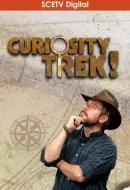This program from the Profile series, produced in 1991, relays the story of Sen. Fritz Hollings, through reflections of his wife, friends and colleagues, and through one-on-one interviews.
Hollings was born in Charleston in 1922, the fourth of five children. He finished high school at the age of sixteen and graduated from The Citadel in 1942. After serving in World War II as a captain, he received his law degree from the University of South Carolina , he began his career in politics.
In 1948, he was elected to the S.C. House, serving as Speaker Pro Tempore for three years. In 1954, he became one of South Carolina's youngest Lieutenant Governors.
Dr. George Terry reflects on his "enthusiasm and energy and the willingness and will to do it." In 1958, he ran against for USC President, Donald Russell, in the Democratic Primary. Hollings was elected governor at the age of 37. Former Gov. John C. West speaks of the deficit that existed in 1959, and Hoillings' efforts to balance the budget, achieving a AAA credit rating. Hollings immediately turned his attention to the creation of jobs and a techical college system to prepare workers for jobs coming to South Carolina. Hollings also worked on education, insurance, mental health and concerns of textile workers and farmers. He also took a stand on racial integration and stressed the importance of integrating peacefully. In 1962, Hollings challenged U.S. Senator Olin D. Johnston but lost. In 1966, Hollings won the Democratic Primary and in 1968, the race for U.S. Senator.
At the time he took office, there was a war on poverty and a war in Vietnam. Hollings toured Vietnam and was immediately called to the White House by President Lyndon Johnson. Hollings told the President that the war could not be won without bombing certain particular targets. He then turned his attention to the war on poverty, and saw the living conditions of many living in poverty, which led to a book, "The Case Agsinst Hunger: A Demand for a National Policy" and an agenda, which supported a nutrition program for women, infants and children, further development of the food stamps and Medicaid programs, and the addition of low-cost preventative health care. Hollings was perceived to be a liberal in terms of social programs but a conservative in other areas, including the budget. As senior member of the Budget Committee, he led initiatives to curb defitit spending, including the Gramm-Rudman-Hollings bill, intended to balance the budget by 1991. Hollings' concern for people who worked in textiles led to efforts to pass a bipartisan comprehensive trade policy.
In 1984, Hollings ran for President, but his campaign ended in New Hampshire. Hollings served as Chariirman of the Senate Commerce Committee, and as Charman of the Commerce, State, Justice Subcommittee of Appropriations, both extremely powerful positions. As Charman of the Commerce, Science, and Transportation Committee, he oversaw NASA, the railroads, the ocean and environment, and broascasting.
Hollings became a critic of FEMA after Hurricane Hugo hit South Carolina in 1989. He also chaired hearings that increased Federal funding to fight substance abuse. Hollings' wife, Peatsy, worked in her husband's office and also traveled with him.
Hollings speaks about working for South Carolinians and says they know where he stands. Colleagues also speak of him and highlight many of the qualities that have followed him throughout his career.
The documentary closes as Hollings nears the end of his fifth term.
Ernest "Fritz" Hollings retired to isle of Palms, S.C. and died on April 6, 2019.


